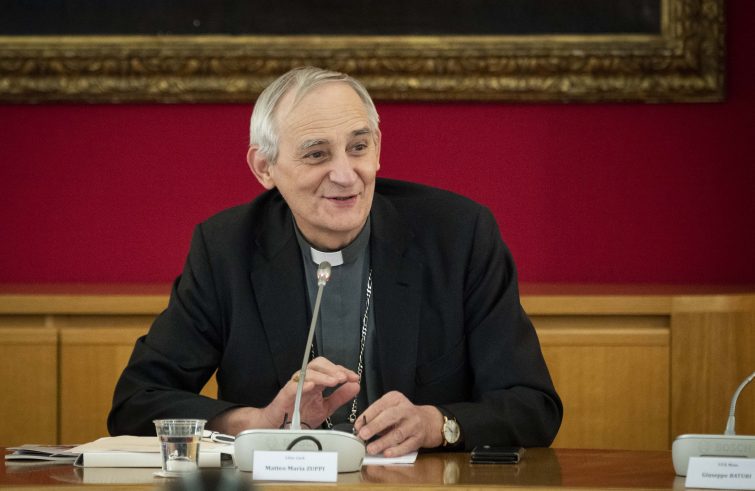
“Major demanding challenges for the good of Italy lie ahead for the new Government, to which I renew my best wishes along with my assurances that the Church, in a spirit of cooperation, will pursue her commitment for the Italian community as a whole, for the most vulnerable, for the cohesion of society, for education and the common good.” Card. Matteo Zuppi, archbishop of Bologna, president of the Italian Bishops’ Conference, focused the central part of his opening address to the Permanent Council of the Italian Bishops’ Conference – underway in Rome from January 23 to 25 – on the situation in Italy, in the throes of an “ongoing economic crisis.” Referring to the 75th anniversary of the Republican Constitution, he pointed out:
“There are various possible forms, and they are up for debate. But what’s most important is to embrace the spirit of the Constitution and apply it to the full and in all of its parts.”
Employment, young people, demographic winter. The pandemic and the crisis of war caused greater poverty and inequality, the Cardinal noted, which is why
“programming the National Recovery and Resilience Plan is of decisive importance.”
One in eight workers today has a precarious, poorly paid job, he denounced: “The difficulties encountered by young people when it comes to achieving a minimum job-housing balance so as to become economically independent and form a family, are among the biggest concerns they expressed in all surveys investigating their conditions, starting with precarious employment.” “Ensuring housing security” for young people, “that will give them dignity and generate life” is thus a priority, along with efforts
“to reverse the course of the cold demographic winter:” “A serious policy to revive the birth rate at the national level cannot be delayed any longer.”
Old people, migrants, paedophilia. Zuppi welcomed “with great satisfaction” the government’s intention “to resume delegated legislation in support of the elderly, representing 14 million citizens”, along with the approval of the Enhanced Palliative Care Program. With regard to migrants and refugees, he called for
“increased regular entry flows, humanitarian corridors and family reunification”,
in synergy with the European Union. His Eminence equally made reference to the issue of paedophilia, expressing his praise for the First National Report on abuse prevention measures in Italian dioceses, with the assurance that the Italian Church will “continue her firm commitment for the most vulnerable and for the growth of a culture characterised by respect, care and protection of the dignity of every person.”
Education. “Schools are the workshops of a country’s future, the place where the foundations for tomorrow are laid and where the best energies and required resources must be invested,” was the Cardinal’s appeal following Don Milani’s example. “The large Catholic school network should be perceived as an ally and not as an adversary of State schools”, he pointed out, calling for “a cultural change” that should start from the role played by teachers of religion in identifying children’s quest for meaning.
War. The Cardinal opened his speech with a reference to the war in Ukraine:
“The world must put an end to this war and seriously tackle the other unresolved conflicts,
which are away from the spotlight, yet equally painful. We are witnessing with dismay the annihilation of young people’s dreams. We express our solidarity with these people who are calling for freedom and justice.”
The future of the Church. The first part of the speech focused on the ecclesial question: the Italian Church, he said, must undergo a
“change of paradigm, otherwise everything is exhausted in internal discussions.”
The Church as a “creative minority” and as a Church “of the people” – and thus the pontificate of Benedict XVI, “who loved Italy as his second homeland and his Church”, and that of Francis – do not contradict each other: “The Church must restore a sense of community in a self-centred and estranged society, calling for a common destiny.” For Zuppi, seeing the Church as a “creative minority” “is by no means inconsistent with the Church of the people that Francis bears witness to: “This too is a reality of our country, as manifested in popular piety. A Church of the people is a reality without borders, without customs.” Finally, in light of the forthcoming assembly of the Italian Bishops’ Conference, scheduled for 22-25 May, the president called for
“rethinking the structure of the Italian Bishops’ Conference,
to foster greater expression of the centrality of the Word of God and to better serve the Churches that are in Italy and strengthen and serve collegiality among us.”











